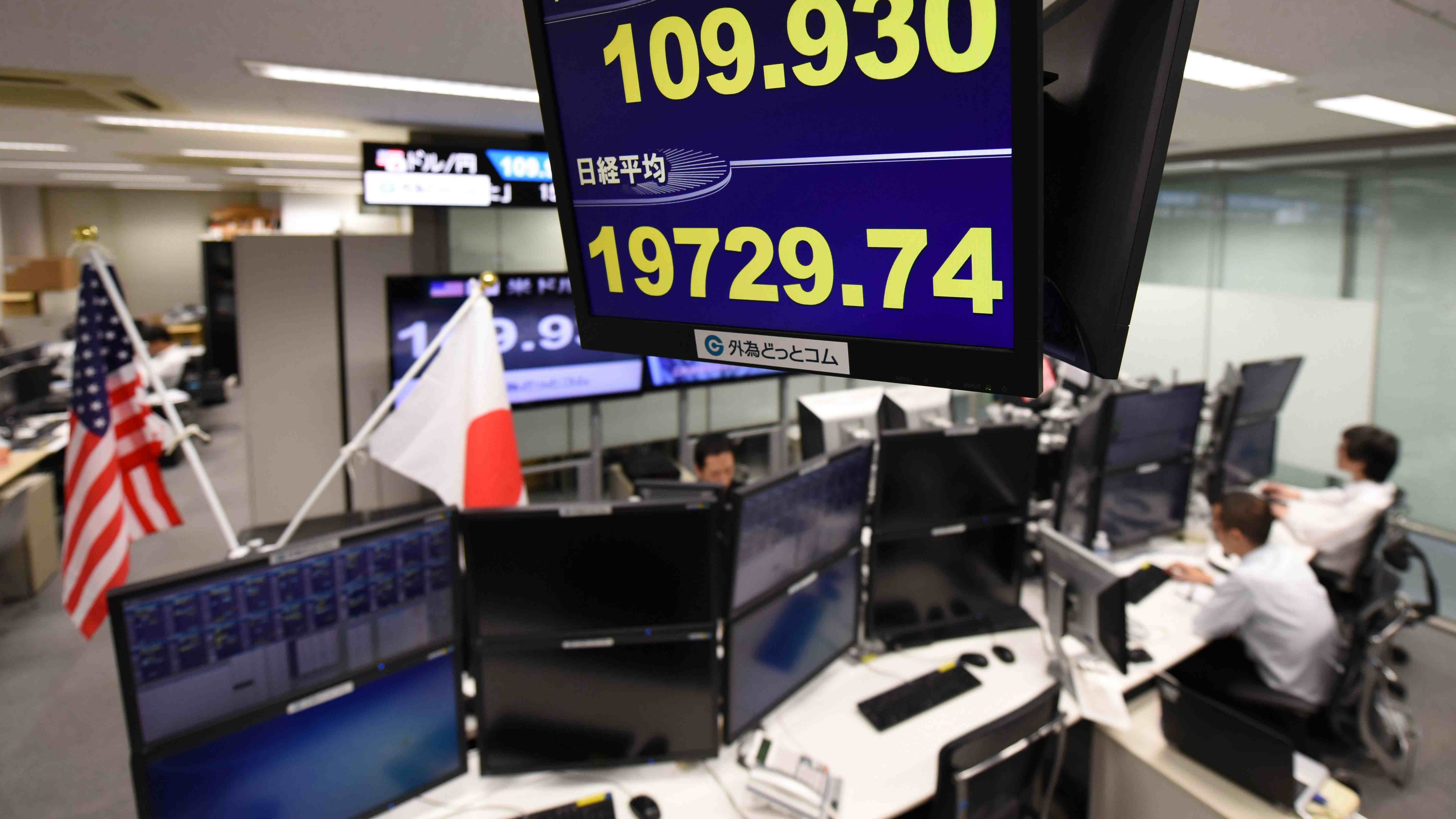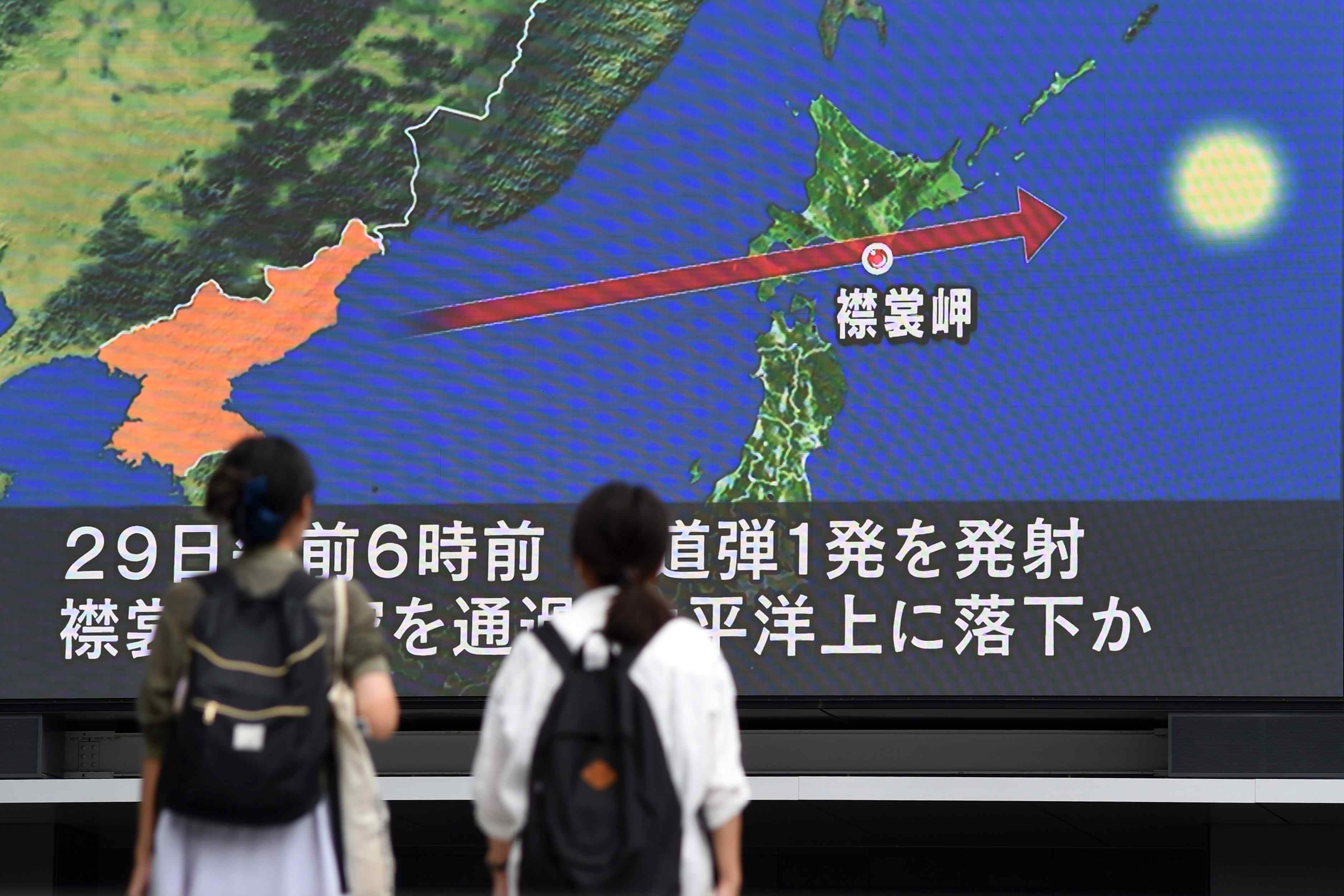
Business
12:31, 29-Aug-2017
Stocks fall, yen rises after latest DPRK missile launch
CGTN

US stock futures and Asian share markets tumbled early on Tuesday after the DPRK fired a missile over northern Japan, sparking angry reactions from countries in the region.
Tokyo stocks fell after the missile launch which Prime Minister Shinzo Abe described as an "unprecedented, serious and grave threat."
Japan's Nikkei fell 0.9 percent to a four-month low at one point while South Korea's Kospi shed as much as 1.6 percent, helping to drag down MSCI's broadest index of Asia-Pacific shares outside Japan 0.7 percent.
S&P mini futures fell as much as 0.85 percent on the news before paring losses slightly to trade 0.65 percent below its close on Monday, when it was little changed as investors tried to assess the fallout from Tropical Storm Harvey.

Passersby watch the path of the latest DPRK missile launch on a public TV in Tokyo, Japan. /AFP Photo
Passersby watch the path of the latest DPRK missile launch on a public TV in Tokyo, Japan. /AFP Photo
"The missile flew across Japan this time, so the implications will likely be a bit different from previous ones," said Hirokazu Kabeya, chief global strategist at Daiwa Securities.
The yen rose to its highest point against the US dollar since April, despite Japan's proximity to the DPRK.
The yen tends to benefit during times of geopolitical or financial stress as Japan is the world's biggest creditor nation and there is an assumption that Japanese investors will repatriate funds should a crisis materialize.
The South Korean won retreated 0.8 percent against the dollar to 1,127 won.
"Financial markets think the only realistic option for the US and North Korea (DPRK) will be to sit down and talk at some point because other options are too costly for everyone involved," said Masayoshi Kichikawa, chief strategist at Sumitomo Mitsui Asset Management.
"But no one cannot rule out the risk of accidents. Markets think the chicken game will continue for now and North Korea (DPRK) will remain a risk," he added.
Investors are also looking to how US President Donald Trump will react to DPRK's latest provocation.
2103km
Source(s): AFP
,Reuters

SITEMAP
Copyright © 2018 CGTN. Beijing ICP prepared NO.16065310-3
Copyright © 2018 CGTN. Beijing ICP prepared NO.16065310-3